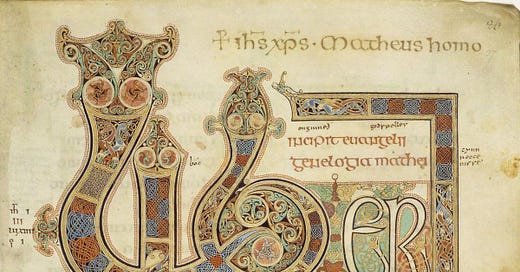Ad respiciendum: the Bible is an anthology of documents produced and edited by a large number of hands from Ancient Israel and Judah, Second Temple Judea and the Judean Diaspora, and the nascent Rabbinic Academy and Christian Church. Jews and Christians developed both different versions of the Bible, and different readings of it, based on different needs, intentions, and usages.
Generally speaking, Jews read the Bible as a normative, literary, and oracular guide to the Jewish experience, and as a legal, ethical, and religious guide to Jewish life. Christians, generally speaking, read the Bible as a metanarrative that tells the story of how creation, fall, and covenant with Israel leads to an inaugurated consummation in the person of Jesus Christ, the gift of the eschatological Spirit of God, and the gathering of the Church. This metanarrative then becomes the basis for a sprawling, systematic, philosophical theology, replete with metaphysics, physics, and psychology, concerns that are not explicitly immediate to either the Hebrew Bible or the New Testament.
And, when comparing these readings, I mainly favor the Jewish reading strategy. It seems to me to have many strengths that are missing from the Christian reading and greater resilience to the impact of historical-critical study of the Bible—even, in some ways, to have anticipated the guild of biblical studies. Jewish exegesis makes philosophical and theological issues about the divine meaning of it all a second-order concern: not dismissing belief altogether, but demoting it beneath belonging and behavior.
What I did not say as clearly as I ought to have in the previous entry is that I favor this way of reading partly because it is unintuitive for me. For most of my life, I have consulted the Bible out of interest in Truth, with a capital T, and only subsequently for the relative or conventional truth necessary to live well in the world in which I find myself. While I think interest in Truth in that ultimate sense is important, it is meaningless if it is not grounded in the concrete and ethical. Christians are prone to separating the two, far more than Jews are. And no one should be kicked out of their community for thinking, thinking critically, or for thinking differently. The psycho-politics of Christian belief can be truly debilitating, because for most Christian communities, belief is the basis for belonging—exercising more influence than ethical behavior.
This is a vice I have never encountered among Jewish readers of the Bible, whether the ones I’ve read about or known personally. I will never forget sitting in on a theology elective that my eighth graders were taking when I was teaching at a Jewish Day School. The rabbi played them an old gospel hymn from the American South, turn-of-century, and he explained to them the belief inherent in the lyrics that, basically, God’s offer of divine grace was unconditional and a relationship once-established with him could not then be broken by the human partner, no matter their actions. He asked for their opinion on this in chavruta groups. I have never seen a room full of tweens and teens react so instinctively, yet so decisively, and declare, with no qualms or confusion, that right standing with God demanded ethical virtue. If there was a God worth a damn enough to believe in, then he required that we act rightly: that was what Judaism taught them. I was impressed by that bedrock moral fiber; I still am. I’ve never or only rarely had a comparable experience of the same intuition in the Christian communities I’ve belonged to.
Yet for all of my being impressed with Judaism, enamored with Judaism, and not infrequently beckoned by Judaism, I have not made the jump. I’m still a Christian. I cannot pretend the reasons for that are entirely ideological, as though there are no real-world ties to my Christian identity that I cannot easily break or whose consequential strepitus would not cause me immense grief, nor that I am never ideologically in a place where I find my own sense of Christianity devastated and my spiritual sympathies with the Jewish Tradition at a fever pitch. (It happens pretty regularly, and usually in this second half of the year, often around the High Holy days and Chanukah.) I read as a Christian at least in part because I am, somewhat inescapably, a Christian, whether I want to be one or not.
But I can also say that at least some of my reason for staying Christian is broadly rooted in a real appreciation for Christianity, one that is deeper than my undulating affections. And so I do see virtues in the Christian reading strategy of reading the Bible, albeit not the ones that most Christians I know see.
Keep reading with a 7-day free trial
Subscribe to A Perennial Digression to keep reading this post and get 7 days of free access to the full post archives.




